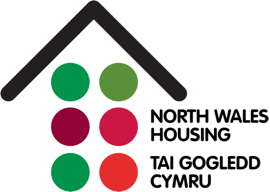A fair green transition across social housing in Wales means considering people and not just properties
We all know the importance of Equality, Diversity and Inclusion (EDI) in the workplace. But did you know that North Wales Housing Association is leading the way to prioritise EDI within decarbonisation and retrofitting homes?
The work is part of NWH decarbonisation plan with a potential £25million spend running up to 2050.
As leaders in driving inclusive change, we ensure that every project we undertake includes a thorough Equalities Impact Assessment (EQIA).
By analysing and reviewing our resident data, Project Manager Kim Bradley and Governance Manager Gareth Roberts have been able to identify that we have many residents who are vulnerable and disproportionately affected by high energy bills, cold, and inadequate heating.
This insight allowed us to implement key control measures, prioritising these residents for decarbonisation works and ensuring they are treated inclusively throughout the process, including access to suitable alternative housing whilst work is being undertaken.
Kim who also leads on equality in decarbonisation and was recently invited to speak at the Tai Pawb Annual Conference – ‘Rising Above’. Tai Pawb, is the not-for-profit housing body in Wales promoting Equality and Social Justice in Housing.
Alongside Tai Pawb, Kim led workshops ‘Fair and Green- Considering Equality in a Green Housing Revolution’ on the role of EQIA’s in green housing, sharing her findings and expertise.
Kim explained the importance of considering equality and understanding that decarbonisation is not just about energy efficiency, but also fairness.
“The EQIA’s impact on strategies, challenges, and innovative approaches to prioritising certain groups is crucial.
Decarbonisation is not just about energy efficiency but also fairness, considering factors such as age, disability, gender, race, religion, social economic status, literacy, and Welsh language. Prioritising residents within these groups involves affordability checks, resident discussions, and taking extra steps to proactively prioritise those with the greatest need.
Some residents need prioritisation due to protected characteristics and vulnerability, such as fuel poverty, health conditions, inadequate housing conditions, and the need for insulation and heating upgrades.
Balancing EPC ratings with real-world impact is essential, and the bigger picture is about climate justice, which should be fair. Challenges in implementation, funding, policy barriers, and convincing stakeholders are addressed through ongoing resident engagement, measuring success, and ensuring policies remain inclusive.
A fair green transition requires considering people, not just properties, and housing strategies must embed equality at every stage.
We are setting the standard for proactive EDI measures across our business and will continue to lead the way in embedding equality”






